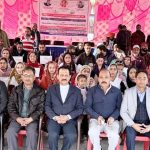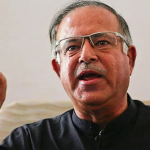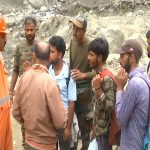In Jammu and Kashmir, tourism degree holders face a lack of job opportunities in academia primarily because the government has not prioritized introducing tourism as a major subject in colleges across the region. Despite the increasing importance of tourism to the economy, the subject has not been integrated into the educational curriculum at a scale that matches its potential. At this time tourism is a subject only in 13 colleges in Jammu and Kashmir. The course was first time introduced at the postgraduate level at the University of Kashmir in the year 2012, till now only two positions at the assistant professor level have been advertised through JKPSC.
As a result, many educated individuals with tourism degrees, PhD, M.Phil. PG and qualified National and state level academic exams, UGC-NET & JKSET remain unemployed, despite their qualifications. These graduates, who have invested time and effort in acquiring specialized knowledge, are left waiting at home without viable career prospects.
There is an urgent need for the government to take concrete steps to address this issue. This includes introducing tourism as a subject in more colleges, creating academic positions in schools, colleges, and universities, and supporting tourism graduates in building meaningful careers. Such initiatives will not only provide job opportunities but also contribute to the growth of the tourism sector in Jammu and Kashmir, which is vital for the region’s socio-economic development.
Establishing academic positions for tourism graduates will provide a structured pathway for degree holders to pursue careers in teaching and research. With Jammu and Kashmir being a prime tourist destination, a specialized academic focus will help train professionals equipped to handle the unique challenges and opportunities of the region.
Academic involvement will encourage research and innovative practices in tourism, enabling the development of new strategies for growth and sustainability. Many tourism graduates are currently unable to find employment in their field and are either leaving the region or remaining underemployed. Creating opportunities within Jammu and Kashmir will help retain this talent and contribute to local development.
The government’s commitment to introducing tourism as a major subject across educational levels will be a transformative step. It will not only uplift tourism graduates but also strengthen the academic and professional framework needed to position Jammu and Kashmir as a leading hub for tourism education and industry excellence.
Tourism education is not just about providing degrees—it is about creating skilled professionals who can contribute to the sustainable growth of the industry and the overall economy of Jammu and Kashmir. Tourism degree holders, when provided with proper opportunities, can drive innovation, improve service quality, and enhance the region’s appeal to domestic and international tourists.
By introducing tourism as a subject in more institutions, the government can ensure a steady supply of qualified professionals ready to meet the needs of the tourism and hospitality industry. Employment opportunities in tourism academia can inspire local communities, emphasizing the value of education and skills in building sustainable careers. With more academic positions and structured educational programs, the unemployment rate among tourism graduates can be significantly reduced, ensuring that their degrees translate into meaningful employment.Establishing tourism as an academic discipline across colleges will create a pool of researchers and educators who can explore region-specific tourism challenges and opportunities, paving the way for evidence-based policy decisions.
The government must act decisively by:
- Increase vacancies for tourism educators at the school, college, and university levels.
- Introduce tourism as a subject in all colleges across the region, ensuring that students have ample opportunities to pursue this field.
This approach will not only help tourism degree holders build sustainable careers. Still, it will also establish Jammu and Kashmir as a center of excellence in tourism education, contributing to the region’s long-term prosperity.
To bring tourism education to the forefront in Jammu and Kashmir, a multi-faceted approach is essential. This requires both immediate and long-term strategies to address the lack of job opportunities for tourism degree holders and to ensure that tourism as an academic discipline is integrated into the region’s educational framework.
Increased employment opportunities in tourism academia will stimulate local economies, particularly in rural and semi-urban areas where tourism plays a vital role. Tourism education can promote the safeguarding of Jammu and Kashmir’s rich cultural heritage, leveraging it as an asset for both learning and tourism.
Providing tourism graduates with academic roles will inspire confidence in pursuing this field, ensuring a steady stream of talent for the region’s tourism industry. Skilled educators and graduates can drive responsible tourism practices, balancing economic growth with environmental and cultural conservation.
Introducing tourism as a subject at the college levels in Jammu and Kashmir will create a well-trained, dynamic workforce that is equipped to meet the challenges and opportunities of a growing tourism industry. It will not only provide a pathway for employment and career advancement for students but also contribute to the region’s economic and cultural development. By focusing on both academic excellence and industry relevance, tourism education can play a key role in shaping the future of Jammu and Kashmir’s tourism sector.
The time to act is now. By introducing tourism as a core subject in schools and colleges, creating academic positions, and fostering a robust educational infrastructure, the government can lay the foundation for a sustainable future. These initiatives will ensure that tourism graduates no longer remain underutilized but become key contributors to the growth and success of Jammu and Kashmir’s tourism sector.
(Author is Assistant Professor at Lovely Professional University, Punjab India. Feedback: [email protected])









